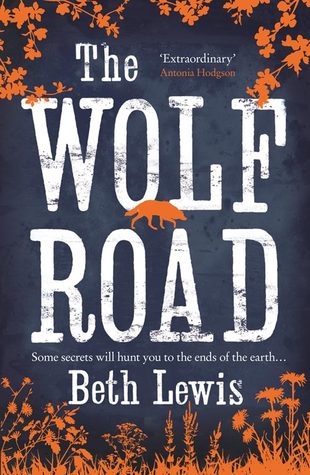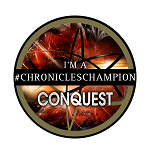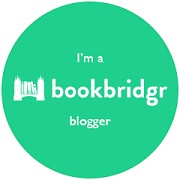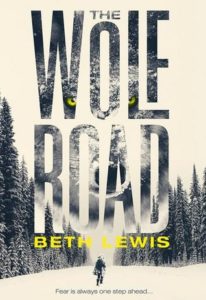
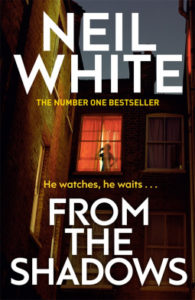

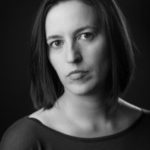
Today to celebrate the release of Wolf Road in paperback and the recent release of From the Shadows, I’ve got the lovely (mostly) Neil White having a chat to the lovely (all the time) Beth Lewis – all about Wolf Road and other things. Thanks both!
Over to Neil then….
Sometimes, the best thing about being a writer is coming across great books written by great people that perhaps otherwise I would have missed. So it was with The Wolf Road by Beth Lewis, my favourite read of 2016 and now due out in paperback on 23rd March 2017.
The Wolf Road and I, however, almost got off to a shaky start.
It was at the Harrogate Crime Festival in July that I came across Beth for the first time. As I squinted out my Sunday hangover in the July sunshine, Beth was sitting by a table with Liz, the host of this conversation, and Liz introduced me, finishing off with, ‘And Beth has a book out. It’s really good, and it’s in the book tent over there,’ and she pointed towards the canvas bookshop erected on the lawn of the Old Swan Hotel.
What could I do? I could hardly say, ‘Thanks for the tip, Liz, but I am not interested in the slightest,’ because Beth was sitting there, drinking tea and being all lovely and friendly.
I faked some enthusiasm and comforted myself with the thought that I might be able to bag it as part of a “buy one, get one half-price” sort of deal, and I shuffled across to the book tent.
At that point, I was committed. I could possibly lie and say it had sold out, but what if they checked it out? Imagine my utter horror, as a penny-pinching northerner, when I found out it was in hardback only, double the price of all the paperbacks in there.
I was trapped. I couldn’t go back and say, ‘I was slightly interested, but not at that price,’ so I harrumphed my way to the till and made my way back to Beth and Liz and pretended I’d never enjoyed spending cash as much.
I should not have been so stingy. When I came to read the book, I enjoyed it more than any book I had read for a long time. It wasn’t just the story, which was gripping and engaging, but the way it was told. I hadn’t enjoyed a book purely for the pleasure of reading for a long time, but I did with The Wolf Road, and I can’t wait for her next
one.
That rambling introduction brings me to Beth herself, and my first question.
Beth, before we learn about The Wolf Road, people might want to know more about you, so what’s your story?
Beth: Gosh, now I feel a touch guilty but it is very difficult to say no to Liz when she recommends books. My story, well, I grew up in a tiny hamlet in Cornwall. There was nothing but fields and moorland between our house and the sea, it was beautiful and wild and I’d spend any time I could outside. There were two WW2 watch towers on the headland so my brother and I would spend summers exploring, making dens, finding artillery shells and rusted up rifles, even found a helmet once. My mother was all about books. We had a room of floor-to-ceiling bookshelves stacked two-books deep and piles of books everywhere. She would tell me stories constantly. I’d write them down and soon started making up my own. When I was eleven or twelve I knew I wanted to be a writer and I knew I wanted to be published by HarperCollins because that’s who published all my mum’s favourite authors – Raymond Fiest, Clive Barker, Tolkien. Knowing also that I didn’t want to be a penniless writer freezing and hungry in a draughty garret, I pursued a career in publishing, figuring that even if I couldn’t write the books, I could at least work with them.
I can also juggle and will happily eat my bodyweight in cake.
Neil: Eating your bodyweight in cake is a noble hobby, because the very process will produce an ever-increasing target. One should always have a hobby with new goals.
It’s interesting that you’ve worked on “the other side” of the writing world. My only experience of publishing is as a writer, so what interests me is how it feels for you to be on this side. Do you view the publishing side differently now that you’ve experienced it from the writer’s view, and is the writer’s view what you expected?
Beth: I work in a very niche area of publishing so my experience wasn’t all that relevant to publishing fiction. I knew terminology and general stages of production – proofs etc. – but the finer details were lost on me so everything has been new. I’m not sure if it helped or hindered me that my partner works in marketing at Penguin Random House. I had a lot of insider information available to me, which was in parts really useful but in other parts, kind of disheartening. For every massive bestseller there are dozens of other books published that week that don’t get much traction or attention, especially from trade reviewers given how little space Books now receive in newspapers. The process hasn’t been wholly what I expected, it’s a strange thing to have a book published, but it’s an amazing experience and I’m hugely grateful.
Neil: This pre-amble brings me, neatly, to your fantastic debut, The Wolf Road, and I do have a few things to ask you about it. First of all, however, let me ask you the mundane questions: what is it about and how did you get the idea?
Beth: The Wolf Road is about a young girl abandoned by her parents, who discovers the man who raised her is a killer so flees into the wilderness to find her real parents. It’s set in Canada, in British Columbia (BeeCee) and the Yukon after some kind of world-changing event. I got the idea from TV. I watch too much and there was a particular show I loved at the time about a girl and her father and whether she was a victim in his crimes or a perpetrator. I found that fascinating and wanted to explore the psychology of that girl and her eventual realisation of her involvement. I’ve also always loved Canada and Alaska and I am addicted to Discovery channel shows set in the Pacific Northwest, as well as survival shows so all my passions just fell into place and the story, and Elka, came to life.
Neil: The locations came across superbly-well in the book, and they gave me a real sense of place and wilderness. Also, I loved Elka’s description of the world-changing event as “the Damn Stupid”, as it summarised her character up so well.
Dealing with the location first though, it struck me when reading the book how you not only captured that wilderness so well, but also the frontier-feel, so much so that it could have been set just as easily in late-nineteenth century frontier Canada. What made you choose to set in the future, set back by this world-changing event, rather than simply in the past?
Beth: Firstly, thank you! Setting a book in a far-off area of the world is a risk in terms of authenticity so it’s been a big relief that people – even Canadians in British Columbia – have found the setting and wilderness believable. I did think about setting the book in the past, during the Alaskan gold rush of the 1890s but that time in particular has been well documented, written about by all sorts of writers for more accomplished than me, so I didn’t feel like I could bring anything new to that particular time in history. I also didn’t want to have to deal with the gender politics of the time. Lyon wouldn’t have been believable as the merciless lawkeeper, Penelope probably wouldn’t have been educated and Elka, well, she’d probably have been exactly the same. I didn’t want to write a book about women overcoming societal barriers or one examining feminism in that setting. I also didn’t want to do a lot of historical research because I’m quite lazy. I wanted the story to be about Elka’s journey and her friendship with Penelope so I decided to strip away all the politics, social expectations, world events, and start from scratch. It was freeing, not having any established rules to adhere to. I felt like the story that emerged, the relationship with Penelope, was purer for it.
Neil: That’s really interesting, and I like your honesty, as well as your logic. My mantra for research is that it should be directly in proportion to the amount of people who’ll know you’ve got it wrong, so I reckon you’d have been okay, but I prefer it the way you’ve done it, now that I understand it.
This brings me neatly to Elka, as what you do so well is the character voice. That is how it was sold to me back in Harrogate, that the voice was somewhat unique, and it is. Elka makes the whole book so engaging, but how did you settle on her voice? Is it possible to define this? Did you have to adopt her voice in your head as you wrote, or was it something you were able to do almost instinctively?
Beth: I love strong voices and accents in fiction, movies and of course, real life. As a young, unpublished writer sending out manuscripts to agents and reading all about what they were looking for, the one thing they were all after was a unique voice. Elka’s voice came so naturally to me, I could hear her inside my head for months. It took me a little time to work out how I wanted to translate that onto the page though maybe now, looking back, I would adjust it somewhat. It’s a risk to write a whole book in dialect but I’m glad I did. I ended up talking, texting, emailing, like Elka. Friends and family who read it early on were also talking in her voice, coming up with their own ‘Elka-isms’. Then when the book came out, people tweeted me in Elka’s voice. The response has just been incredible. I wish I had a clearer idea of where the voice came from. It’s kind of a mix between the American South, Appalachian, and the Yukon and probably comes from a dozen different movies and TV shows, but none of those at the same time. I think it’s what makes Elka unique.
Neil: That is very interesting, but it makes me think that you’ve created a whole new set of problems for yourself, because from other conversations we’ve had, your next book doesn’t involve Elka, and has a wholly different setting. What is it about and how did you fix on a whole new voice for it? And when can I get my mitts on it?
Beth: The next book is totally different. It’s set in the early seventies, in a small town in the American Midwest. It’s out in May 2018, I believe. It’s about four kids, best friends, who discover a body and set about trying to solve a murder but they ask too many questions and gain the attention of the town’s darker elements with nasty consequences. It’s set over three summers and is dark as hell. For me, it’s all about growing up, letting go of childhood and realising your parents, your town, your world, is not all sunshine and hazy summer days. It’s also written in the first person, from the point of view of one of the kids. It’s not dialect heavy at all, it’s quite the departure from Elka but I didn’t want to repeat myself. It’s always tempting as a writer to stick with what has worked for you in the past, but I always want to challenge myself. Each book I write has to have a point to it and has to be new, whether in structure, voice, setting, it’s got to be unique.
Neil: Thank you Beth, that sounds fantastic. It’s a long wait for me but all the best things are worth hanging around for.
To Beth, I say thank you for the chat and the best of luck with the paperback of The Wolf Road.
To everyone else, I say buy the damn book! You won’t regret it. It’s out in paperback on 23rd March 2017, and is already on your Kindle.
About the Books:

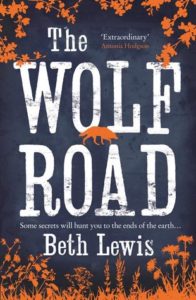
Everything Elka knows of the world she learned from the man she calls Trapper, the solitary hunter who took her under his wing when she was just seven years old.
But when Elka sees the Wanted poster in town, her simple existence is shattered. Her Trapper – Kreagar Hallet – is wanted for murder. Even worse, Magistrate Lyon is hot on his trail, and she wants to talk to Elka.
Elka flees into the vast wilderness, determined to find her true parents. But Lyon is never far behind – and she’s not the only one following Elka’s every move. There will be a reckoning, one that will push friendships to the limit and force Elka to confront the dark memories of her past.

He hides in the shadows, watching, waiting, until the time is right . . .
Mary Kendricks, a smart, pretty, twenty-four-year-old teacher, has been brutally murdered and Robert Carter is accused of killing her.
When defence lawyer, Dan Grant inherits Carter’s case only weeks before the trial starts, everyone expects him just to babysit it, but Dan’s not that kind of lawyer. He’ll follow the evidence – wherever it takes him.
But as Dan and his investigator Jayne Brett look into the case, they discover that there is more to it than meets the eye. In order to do their jobs they need to push the limits of the system, even if it means putting themselves in danger.
Together they will get to the truth – whatever the cost . . .
Happy Reading!
